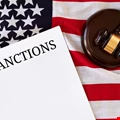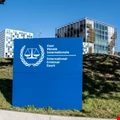Infosecurity News

WordPress Plugin Flaw Exposes 600,000 Sites to File Deletion
A severe flaw identified in the Forminator WordPress plugin allows arbitrary file deletion and potential site takeover

Privilege Escalation Flaw Found in Azure Machine Learning Service
A critical Azure Machine Learning flaw allows privilege escalation, risking subscription compromise

CVE Program Launches Two New Forums to Enhance CVE Utilization
The CVE Board has launched a Consumer Working Group and a Researcher Working Group, allowing new stakeholders to shape the future of the CVE Program

Automation and Vulnerability Exploitation Drive Mass Ransomware Breaches
ReliaQuest warns that initial access vulnerability exploitation is driving successful ransomware attacks

North Korean Hackers Target Crypto Firms with Novel macOS Malware
SentinelLabs observed North Korean actors deploying novel TTPs to target crypto firms, including a mix of programming languages and signal-based persistence

Linux Users Urged to Patch Critical Sudo CVE
Two elevation of privilege vulnerabilities have been discovered on the popular Sudo utility, affecting 30-50 million endpoints in the US alone

Android SMS Stealer Infects 100,000 Devices in Uzbekistan
New Android malware Qwizzserial has infected 100,000 devices, primarily in Uzbekistan, stealing SMS data via Telegram distribution

AI Models Mislead Users on Login URLs
A third of AI-generated login URLs lead to incorrect or dangerous domains, according to Netcraft

Chinese Hackers Target France in Ivanti Zero-Day Exploit Campaign
The French cybersecurity agency identified Houken, a new Chinese intrusion campaign targeting various industries in France

US Treasury Sanctions Russian Bulletproof Hosting Service Aeza Group
The Treasury said that Aeza Group has provided infrastructure services for notorious infostealer and ransomware operators

Dozens of Corporates Caught in Kelly Benefits Data Breach
Benefits admin specialist Kelly Benefits has revealed a breach impacting over 500,000 individuals across 45 client organizations

Qantas Reveals “Significant” Contact Center Data Breach
Qantas admits that a “significant” volume of customer data may have been stolen from a contact center

Cloudflare Now Blocks AI Web Scraping by Default
Cloudflare now blocks AI web crawlers by default, requiring permission from site owners for access

Google Issues Emergency Patch for Fourth Chrome Zero-Day of 2025
Google has patched a critical type confusion vulnerability in Chrome, the fourth zero-day fix in 2025

New Report Uncovers Major Overlaps in Cybercrime and State-Sponsored Espionage
Proofpoint has identified similarities between the tactics of a pro-Russian cyber espionage group and a cybercriminal gang

International Criminal Court Hit by “Sophisticated and Targeted” Attack
The ICC said the new incident was the second “of its type” it has faced in recent years, relating to an espionage attack in 2023

Crypto Hack Losses in First Half of 2025 Exceed 2024 Total
CertiK found $2.47bn in crypto was stolen in H1 2025, largely due to two major security incidents – ByBit and Cetus

Ransomware Strike on Swiss Health Foundation Exposes Government Data
The threat actor Sarcoma has been held responsible for a ransomware attack on a Swiss health foundation

Scam Centers Expand Global Footprint with Trafficked Victims
Interpol warns that scam centers are expanding beyond Southeast Asia

US DoJ and Microsoft Target North Korean IT Workers
Both the US authorities and Microsoft have taken action to disrupt North Korean IT worker schemes



